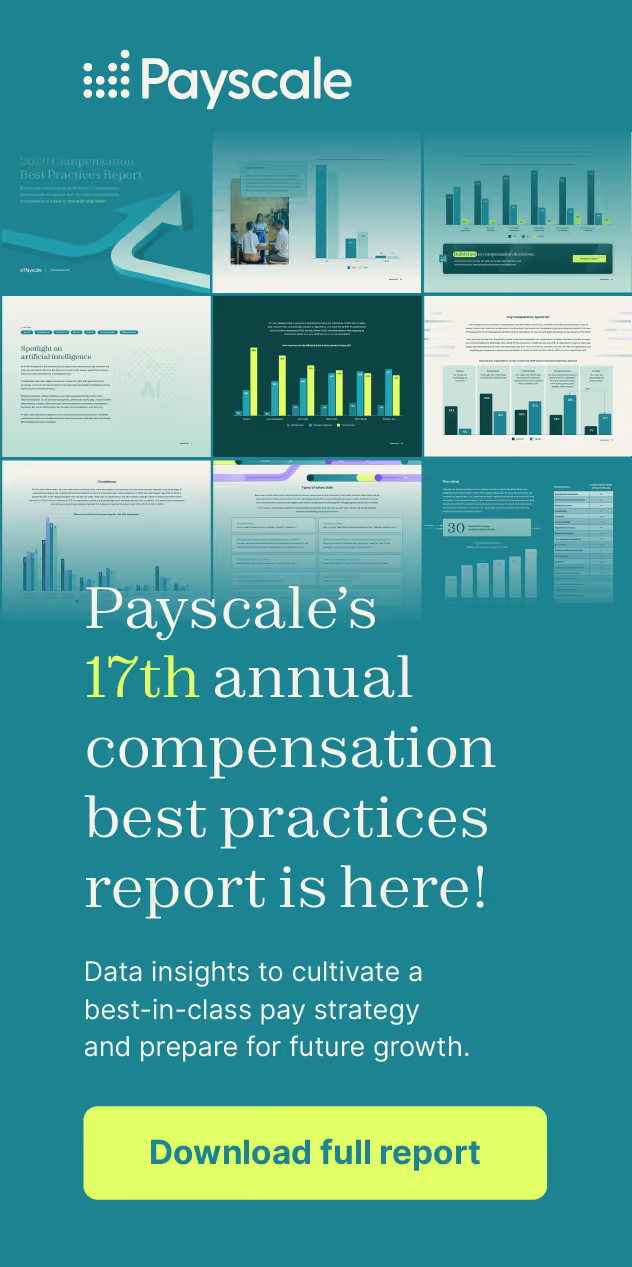Happy New Year!
January always feels like six months in one – like the month is stuck in slow motion, still recovering from the holiday season. Yet, somehow, things are moving at lightning speed when it comes to pay transparency.
Here are the updates we’ve already seen in January:
Déjà vu? Maine, Montana, and Virginia Try Again
Maine
Maine proposed a pay transparency bill last year, which was seemingly left in limbo and died when the legislative session ended. However, the Maine state legislature is trying again.
If passed, LD54 would require employers with 10 or more employees to post a “range of pay” in all job postings. “Range of pay” means pay that an “employer anticipates relying on in setting wages for a position.” This range must reflect what the employer plans to offer based on factors like:
- The role’s actual pay scale
- Previously determined wage ranges
- Current employees’ salaries
- The budgeted amount for the role
The bill also mandates that employers keep records of each employee’s role and pay history during employment and for at least three years after termination.
Montana
Montana is also taking a second bit at the apple.
If passed, LC0120 would require employers to disclose salary or wage ranges in all job postings, including internal transfers and promotions. Employers would also need to:
- Maintain records of job descriptions and wage histories for each employee
- Keep these records for two years after employment ends
- Follow a Salary History Ban, meaning they can’t ask candidates about past salaries or use that information in hiring decisions
Penalties for non-compliance could reach $10,000 per violation, plus legal fees.
Virginia
Almost a year ago, Virginia’s legislature quickly (and narrowly) passed a pay transparency law, only for Governor Youngkin to veto it. Well, second time’s a charm?
If passed, SB1132 would require employers to include salary or wage ranges in all job postings, including internal promotions and transfers. The bill would also:
- Enforce a Salary History Ban
- Impose penalties of up to $10,000 per violation, plus legal fees
The bill has already passed the state Senate, but it still faces the challenge of getting past Governor Youngkin’s desk.
New Pay Transparency Proposals Across the Country
Oregon
The “Beaver State” has also proposed a pay transparency bill.
If passed, HB2746 would require employers to:
- Disclose wage ranges in all job postings
- Provide a general description of benefits and other compensation
- Maintain wage history records for two years after an employee leaves
If enacted, Oregon’s law would take effect on January 1, 2026.
Indiana
The “Hosier State” has also surprisingly proposed a pay transparency bill.
If passed, HB 1300 would require employers to:
- Include wage ranges and benefits descriptions in all job postings
- Provide this information to current employees upon request
- Face civil penalties for violations
Employers with four or more violations would be publicly listed on Indiana’s Equity Data Portal.
Missouri
The “Show Me State” has also (again, surprisingly) proposed a pay transparency bill “lite” bill.
If passed, SB373 would require employers to disclose wage ranges:
- Upon an applicant’s request or before making a job offer
- To internal candidates for promotions or transfers after an interview or job offer
Penalties for non-compliance range from $1,000 to $5,000 per violation.
Connecticut
Connecticut is also joining the pay transparency train.
If passed, SB 1036 would establish disclosures similar to Colorado’s pay transparency law. Unfortunately, there isn’t much more information than that, so we will keep a close eye on this bill as it works its way through the Connecticut General Assembly.
Cleveland, Ohio
The Cleveland City Council introduced a bill at the end of January that would require employers with 15 or more employees to disclose pay ranges on job postings and implement a Salary History Ban. While Ohio has yet to propose a pay transparency bill, Cincinnati and Columbus, Ohio, have passed pay transparency “lite” laws, requiring employers to provide the salary range during the interview process and imposing a Salary History Ban.
Ontario, Canada
After years of uncertainty, we finally have an effective date for Ontario’s new pay transparency law.
Beginning January 1, 2026, employers with 25 or more employees will need to:
- List the salary range for every job posting for roles performed in Ontario;
- Job postings must also disclose whether employers are using AI to screen, assess, or select applicants for the role;
- Job postings must identify specific job types (e.g., full-time or part-time) and work location (remote, hybrid, in-office);
- Employers must retain copies of every publicly advertised job posting for three years after the posting is taken down.
Beginning July 1, 2025, employers must also provide employees with information about employment before their first day of work. The information to be provided includes:
- The legal name of the employer, as well as any operating or business name of the employer if different from the legal name;
- Contact information for the employer, including address, telephone number, and one or more contact names;
- A general description of where it is anticipated that the employee will initially perform work;
- The employee’s starting hourly or other wage rate or commission, as applicable;
- The pay period and pay date established by the employer;
- A general description of the employee’s initial anticipated hours of work.
Pay Transparency Cheat Sheet
Here is a list of states that will enact pay transparency legislation in 2025:
🍕 Illinois ➡ January 1, 2025
❄ Minnesota ➡January 1, 2025
🎡 New Jersey➡ June 1, 2025
🍂 Vermont ➡ July 1, 2025
🦞 Massachusetts ➡ October 29, 2025
What does this mean for employers? It’s time to start checking your pay structures (including benchmarking your roles and running pay equity checks), updating your job postings to include those salary ranges, and building trust through transparency with your incumbent employee population.
Here’s a list of pay transparency laws already enacted:
🐻 Colorado
☀ California
⛰ Washington state
🌃 New York state/NYC
🌺 Hawaii
🏛 Washington D.C.
🦀 Maryland
The momentum behind pay transparency laws is stronger than ever. With multiple states and cities pushing for new regulations, employers need to stay ahead of the changes. We’ll continue to monitor these developments and provide updates as they unfold.
Stay tuned!
In case you missed it, we had a must-watch webinar last year, “How to Prepare for Pay Transparency in 2025.” Don’t worry: the information is still as fresh and relevant as it was in December 2024.😉






